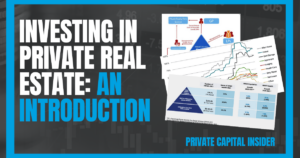For decades, ESG investing – short for Environmental, Societal & Governance – has been code for “lower returns” or “cheap marketing gimmick.”
But new research is revealing something important about ESG.
Companies with strong ESG frameworks are driving serious shareholder value!
But for investors searching for the proverbial opportunity to “do well while doing good”…
It’s important to go beyond the marketing speak and understand how ESG can drive shareholder returns.
The ESG Value Proposition
ESG investing has never been more popular than it is today.
By 2025, ESG investing is projected to reach $53 trillion in assets globally— roughly equal to a third of all investment assets under management…
And the increasing pressure from shareholders – and governments – is setting the stage for serious change in the financial markets.
Why? Because money flows where it’s treated best…
And if ⅓ of all assets under management want to flow towards ESG oriented investments, it means there’s a huge opportunity for companies to attract a tremendous amount of growth capital.
But beyond access to potentially cheap and plentiful sources of capital, how does ESG create a foundation for a more ethical form of wealth creation?
According to a 2019 report from McKinsey:
From our experience and research, ESG links to cash flow in five important ways:
- facilitating top-line growth,
- reducing costs,
- minimizing regulatory and legal interventions,
- increasing employee productivity, and
- optimizing investment and capital expenditures
Or put another way, companies that demonstrate a commitment to ESG can potentially attract better customers who pay more… better employees who produce more… lower costs by using less energy and generating less waste… and reduce risks from regulatory and legal actions.
This brings us to the “$53 Trillion Question” everyone is having a hard time answering…
How do consumers, investors, and regulators hold ESG companies accountable for their claims?
It all comes back to how companies handle reporting — and how they handle something called shareholder proposals…
ESG Shareholder Proposals On the Rise
Proxy voting is the primary means for shareholders (usually large asset managers) to communicate their views about a company’s ESG practices.
Shareholder proposals tend to focus on a single, concrete call to action and provide investors with a more solid basis for any further action.
“At the end of the 2020 proxy season, 90% of S&P 500 companies had published some kind of ESG report, up from 86% the prior year and 20% a decade ago.
Despite this increase in transparency, the number of shareholder proposals requesting additional environmental and social information remains elevated.”
The authors suggested that 2021 could have been a watershed year for ESG proposals, unfortunately, that wasn’t what happened…
Only 21% (30 of 146) of environmental and social resolutions assessed received over 50% support in 2021.
And even though we’ve heard lots of lip service from the “big three” asset managers – Blackrock, Vanguard Group, and State Street Global Advisors which represent ~$20 trillion in assets under management – revealed a different story.
According to a December 2021 report released by ShareAction.org…
“The very largest asset managers’ voting records provide particular cause for concern.
Eighteen additional resolutions would have received majority support if one or more of the world’s three largest asset managers had switched to vote in favour of them.
These resolutions included:
- One on tobacco marketing to underage consumers;
- One on environmental pollution;
- Two relating to Covid-19;
- Two on climate change policy/strategy;
- Five on climate-related lobbying; and
- Seven on diversity and inclusion.
These findings demonstrate the extent to which the Big Three continue to block efforts to improve corporate behaviour on environmental and social issues.”
Without getting way too deep into the weeds on how companies handle shareholder proposals – or try to have them omitted via no action requests – the takeaway is clear…
In the world of public companies, your vote matters. And even though you – as an individual – might not control enough shares to swing the vote…
We’ve saw in 2021 what a motivated group of retail investors can do (i.e. AMC and Gamestop).
That’s why we’re committed to building an engaged community of retail investors who care about more than just financial returns.
Because what’s the point of making money if there’s no planet left to enjoy?
At Equifund, Your Vote Matters
If you missed our recent webinar, “Our 2022 Pre-IPO Gameplan,” we talked about our Big Hairy Audacious Goal (BHAG)…
Help launch (or uplist) 300 publicly traded companies by 2032!
To be clear, yes, we are still a business and yes, that means we have to generate financial returns.
But there’s a big reason why we choose to raise money from “the crowd” instead of traditional institutions…
Companies – by definition – exist to serve shareholders.
And it’s our opinion that if we can develop an actively engaged community of investors who represent “regular people”…
We have a chance to help build companies that are motivated to serve the needs of more than the already rich.
But we can’t do it alone! We need more people like you to join our growing community of long-term investors who care about ESG.
Don’t keep us a secret! Invite your family, friends, coworkers, and neighbors to join us in our mission to create more ESG focused companies.
Thanks again for your support. You mean the world to us… and one day, all of us can mean something for the world.
Sincerely,
Jake Hoffberg – Publisher
Equifund














